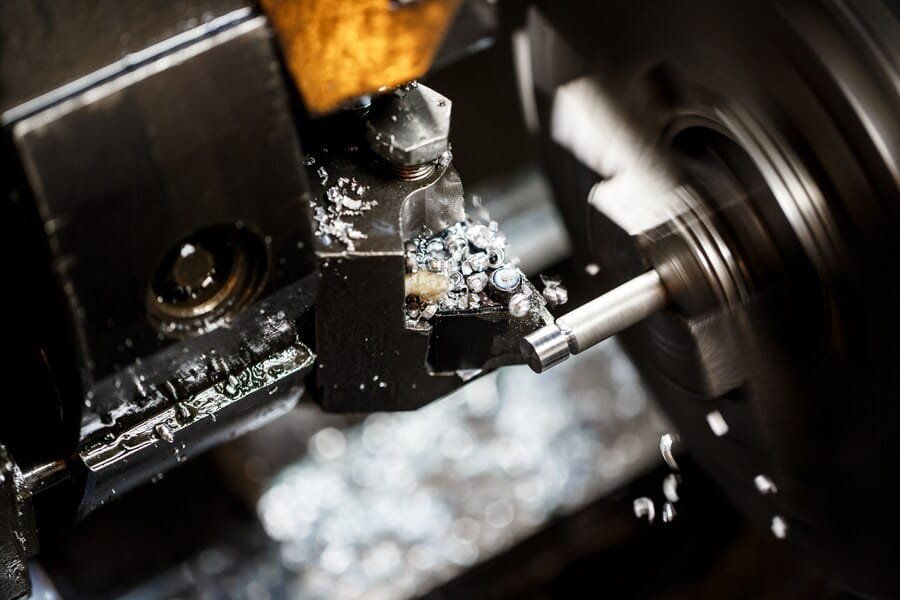Precision machining has become a cornerstone for producing high-quality components that meet the most exacting standards in the world of manufacturing today. Industries such as aerospace, automotive, and medical devices demand top-tier precision, and CNC (Computer Numerical Control) machining has risen to the challenge. This technology is essential for ensuring accuracy and efficiency in producing parts that must meet critical tolerances. As we look to the future, CNC machining is poised to drive even greater innovation, with advancements in technology, automation, and materials shaping its evolution.
What is CNC Precision Machining?
CNC precision machining involves using computer-controlled machinery to automate the cutting, shaping, and finishing of materials with incredible precision. Unlike traditional manual machining, CNC technology reduces human error and increases consistency. These machines can produce parts with tight tolerances, making them indispensable in industries where performance and safety are paramount. From creating engine components to medical devices, CNC machining ensures each part adheres to strict design specifications.
CNC technology is not just about making components; it’s about making the right components — ones that meet exacting standards of performance and reliability. Whether for aerospace engines or medical implants, precision machining parts manufacturers use cutting-edge CNC systems to produce parts that guarantee long-lasting, optimal performance.
The Role of CNC Parts Machining in Today’s Industries
One of the key reasons CNC machining is so valuable is its ability to handle complex geometries and detailed specifications. In industries like aerospace, where components often require intricate designs, the precision offered by CNC machines is indispensable. In automotive manufacturing, where parts must fit together perfectly to ensure vehicle safety, CNC machining provides the accuracy needed to produce reliable and high-performance products.
CNC machining’s versatility allows machined components manufacturers to work with a wide range of materials — metals, plastics, and composites. This adaptability makes it a go-to solution across various industries, ensuring that manufacturers can produce components that meet the unique needs of each sector.
Key Benefits of CNC Precision Machining
- Enhanced Accuracy and Consistency
CNC machines can repeat operations with remarkable precision, ensuring that each part produced adheres to the same tight tolerances. This consistency is vital in industries where even the smallest variation in a part could result in system failure, such as in aerospace or medical devices. - Increased Efficiency
With automation, CNC machining reduces the potential for human error, minimizes production delays, and increases manufacturing efficiency. For machining parts in Texas and other parts of the world, this means faster turnaround times and lower production costs. - Complexity Made Simple
CNC machining excels at producing parts with intricate designs and geometries, often exceeding what can be accomplished manually. This opens the door to more innovative designs and solutions, particularly in industries like aerospace and medical devices. - Cost-Effectiveness
Although CNC machinery can represent a significant upfront investment, its precision and automation lead to fewer rework cycles and reduced material wastage, ultimately lowering production costs.
The Future of CNC Precision Machining
Looking ahead, the future of CNC machining is filled with exciting possibilities. Advances in software, machine tools, and materials will continue to push the boundaries of what’s possible. One area where we are already seeing dramatic improvements is in the integration of Artificial Intelligence (AI) and Machine Learning (ML) into CNC machining processes. These technologies will help manufacturers optimize workflows, reduce downtime, and increase overall accuracy by learning from production patterns and automating adjustments in real time.
Moreover, additive manufacturing and hybrid machining technologies are expected to play a bigger role, enabling even more intricate designs and faster production times. As CNC parts machining becomes more advanced, the precision and versatility of these systems will allow manufacturers to push the limits of innovation even further, producing highly complex components that meet the ever-growing demands of various industries.
Conclusion
CNC precision machining is at the heart of modern manufacturing, driving innovation and delivering high-quality components across industries that demand the highest standards. As precision machining parts manufacturers continue to embrace new technologies and innovations, the future of CNC machining looks brighter than ever. With advancements in AI, automation, and machine design, CNC machining will continue to lead the way in producing parts with impeccable accuracy and efficiency — propelling industries forward and supporting the creation of tomorrow’s most advanced products.
As technology evolves, machine parts in Texas and beyond will benefit from these cutting-edge innovations, solidifying CNC machining as the backbone of precision manufacturing.
At Arek Solutions, we combine decades of expertise with cutting-edge precision machining technology to deliver high-quality, customized components that meet the unique needs of our global clients. As a trusted precision machining parts manufacturer in Texas, we are committed to providing innovative solutions that drive success across industries. Contact us today to experience excellence in every part we produce.


